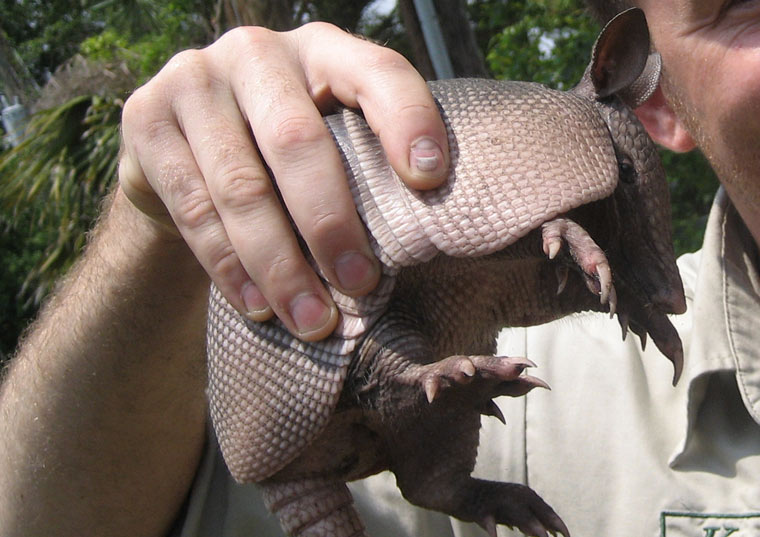-
info@aaanimalcontrol.com
Call us for help in your town
Humane Wildlife Education
Is it safe or sanitary to handle wildlife with my bare hands?
Need wildlife removal in your hometown? We service over 500 USA locations! Click here to hire us in your town and check prices - updated for year 2020.
It is NOT safe to handle a wild animal with bare hands, and there are more reasons than we have time to list why. We will start with a few important ones:

1 - Most wild animals have teeth and claws, both of which can tear at flesh. That's what they are designed for, particularly when looking at omnivores, such as raccoons and opossums. Opossums are more likely to play dead, of course, but raccoons can be terribly vicious little creatures, especially when food is involved. If you start feeding raccoons and then stop, they will get annoyed and will lash out in an attempt to get the food from you again.
2 - Most wild animals carry disease. The poor raccoon is getting it with both barrels today, but once again, they are one of the biggest culprits as far as disease is concerned. They carry rabies, to start with, and that's on top of the roundworm problem. This brings us nicely to our next point …
3 - Most wild animals carry disease and leave it in their waste material. Yep, we're talking about raccoons again. Raccoon scat can contain roundworm eggs, which can then easily be passed onto humans, kids and adults alike, and other pets too, included domesticated animals. If your dog gets too close to raccoon scat, it can become infected with the roundworm parasite and then introduce it into your household. It will more than likely spread around your home in a very short space of time.
4 - Still talking about the poop, bat guano doesn't even need to be touched in order to be dangerous. One of the biggest mistakes that homeowners make when cleaning up after bats is using a dustpan and brush or a broom to sweep up the droppings. When you do this, you are sending dust and tiny spores into the air. You can inhale these spores, and bats are known to carry the spores behind histoplasmosis. Even if the rats aren't present — even if you don't touch them at all -- you can still be at risk from disease.
5 - Female wild animals who are just trying to protect her young are vicious. If you handle the babies and the mother spots you, she'll think you are a predator and she will attack. Black bears are renowned for being seriously overprotective of her young, and the raccoon is a close relative of the bear. It's just not an animal you will want to get too close to. This is just the youngsters too. The adults are dangerous enough alone, without bringing a small family into the mix.
You shouldn’t handle animals with bare hands, whether you're talking about a baby or an adult. They can both be equally as dangerous as each other, and ALL wild animals come with the threat of disease. Some of them have greater risks than others.
For more information, you may want to click on one of these guides that I wrote:
How To Guide: Who should I hire? - What questions to ask, to look for, who NOT to hire.
How To Guide: do it yourself! - Advice on saving money by doing wildlife removal yourself.
Guide: How much does wildlife removal cost? - Analysis of wildlife control prices.
animals in the attic
noises in the attic


















